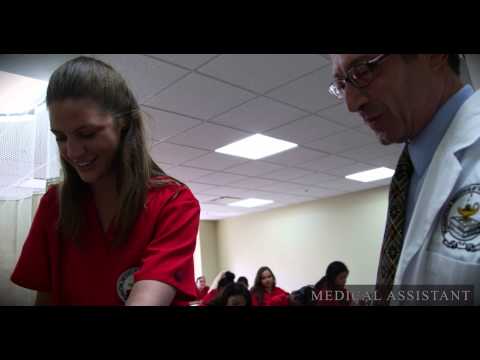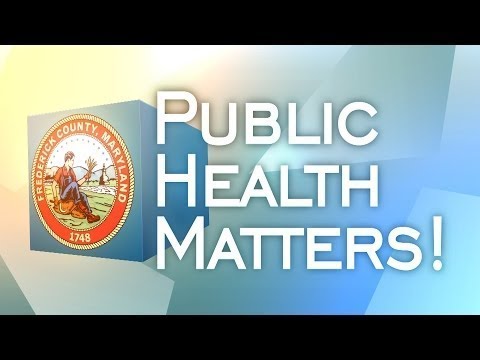How Can Medical Assistants Ensure Privacy of Patient Records?
Contents
- 1. Introduction
- The health insurance Portability and Accountability Act
- The Role of Medical Assistants in Ensuring Patient Privacy
- Training and Education for Medical Assistants
- Implementing Policies and Procedures
- Monitoring Compliance
- Investigating Breaches
- Reporting Violations
- working with other members of the healthcare team
- conclusion
Medical assistants play an important role in protecting the confidentiality of patient records. Here are some tips on how they can ensure privacy.
Checkout this video:
1. Introduction
Medical assistants play a critical role in protecting the privacy of patient records. In the United States the health insurance Portability and Accountability Act (HIPAA) sets forth strict rules about how medical information can be used and disclosed. Medical assistants need to be aware of these rules in order to ensure that patient records are kept confidential.
There are a few key ways that medical assistants can help to ensure the privacy of patient records:
1. Only accessing records that are necessary for their job: Medical assistants should only access patient records that are necessary for them to do their job. For example, if a medical assistant is responsible for scheduling appointments, they would only need to access the part of the record that contains the patient’s contact information.
2. Keeping patient records secure: Medical assistants should keep patient records secure at all times. This means keeping them in a locked filing cabinet or password-protected computer file. It is also important to shred or destroy any paper records that are no longer needed.
3. Not sharing patient information without permission: Medical assistants should not share patient information with anyone without the patient’s permission. This includes family members, friends, and other healthcare providers. If a patient asks that their information not be shared with a specific person, the medical assistant must respect this request.
4. Following HIPAA rules: HIPAA sets forth strict rules about how medical information can be used and disclosed. Medical assistants need to be familiar with these rules in order to ensure that they are protecting the privacy of patients’ records.
The health insurance Portability and Accountability Act
The health insurance Portability and Accountability Act (HIPAA) is a U.S. law that was passed in 1996. HIPAA sets standards for the privacy and security of patient health information. HIPAA applies to all “covered entities,” which includes medical practices, hospitals, and other health care providers.
Under HIPAA, medical assistants must take steps to keep patients’ health information private. This means ensuring that only authorized people have access to patient records, and that these records are stored in a secure location. Medical assistants should also be aware of the “minimum necessary” rule, which states that only the minimum amount of information needed should be shared with anyone who does not have a “need to know.”
If you are a medical assistant, you play a vital role in protecting patients’ privacy. By following HIPAA guidelines, you can help ensure that patients’ health information is kept confidential.
The Role of Medical Assistants in Ensuring Patient Privacy
Medical assistants play an important role in ensuring the privacy of patient records. They are responsible for maintaining the confidentiality of patient information and must take care to protect patients’ rights to privacy.
There are a number of ways in which medical assistants can ensure the privacy of patient records. First, they should make sure that only authorized personnel have access to the records. Second, they should take care to safeguard the records from unauthorized disclosure. Finally, they should take steps to ensure that the records are accurate and complete.
Training and Education for Medical Assistants
Medical assistants play a critical role in keeping patient information confidential. They are often the first point of contact for patients and are responsible for maintaining medical records scheduling appointments, and handling billing and insurance paperwork.
Because medical assistants have access to such sensitive information, it is important that they receive training on how to keep patient records private. The health insurance Portability and Accountability Act (HIPAA) is a federal law that requires all healthcare providers to maintain the confidentiality of patient health information.
All medical assistants should be familiar with HIPAA regulations and understand how to apply them in the workplace. They should know how to properly handle and store medical records and understand when and how to release information to patients or family members.
Medical assistants who are starting their careers should receive training on HIPAA from their employers. Those who are already working in the field can find HIPAA training courses offered by many professional organizations, such as the American Association of Medical Assistants (AAMA). Taking a course on HIPAA privacy regulations is an important way for medical assistants to protect the confidential information of their patients.
Implementing Policies and Procedures
As a medical assistant, you play a vital role in ensuring the privacy of patient records. You may be responsible for creating, implementing, and monitoring policies and procedures related to the confidentiality of medical information.
There are many ways you can help protect the confidentiality of patient records. First, make sure you understand the requirements of the health insurance Portability and Accountability Act (HIPAA). HIPAA is a federal law that sets standards for the handling of protected health information (PHI). You should also be familiar with your state’s laws related to confidentiality of medical information.
second, create policies and procedures for your office that ensure compliance with HIPAA and state laws. These policies should address how PHI will be used, disclosed, and stored. They should also specify who in the office is authorized to access PHI. make sure all staff members are trained on these policies and procedures.
Third, implement physical safeguards in your office to protect patient records from unauthorized access. This may include locked filing cabinets or password-protected computer systems.
fourth, take steps to limit access to PHI to only those staff members who need it to do their jobs. Make sure all staff members understand their responsibility to keep PHI confidential. And fifth, monitor compliance with your office’s policies and procedures related to confidentiality of medical information.
Monitoring Compliance
Medical assistants play an important role in maintaining the privacy of patient records. They are responsible for ensuring that compliance with federal and state privacy laws is maintained at all times.
There are a number of ways in which medical assistants can help to ensure the privacy of patient records. They can:
Monitor compliance with federal and state privacy laws;
Ensure that only authorized personnel have access to patient records;
Make sure that patient records are kept in a secure location;
Destroy patient records when they are no longer needed.
Medical assistants should also be aware of the signs that a breach of patient privacy has occurred. These can include:
Unauthorized access to patient records;
Disclosure of confidential information to unauthorized persons;
Improper disposal of patient records.
Investigating Breaches
As a medical assistant, you are responsible for safeguarding patient privacy. This includes ensuring that patient records are kept confidential and secure. If you suspect that a patient’s privacy has been breached, it is your duty to investigate the matter.
There are several steps you can take to investigate a potential breach of patient privacy:
1. Speak to the person who you think may have breached confidentiality. Get their side of the story.
2. Review the relevant policies and procedures. Make sure you understand what is expected of employees with respect to safeguarding patient confidentiality.
3. Speak to other employees who may have witnessed the incident or who have relevant information.
4. Review any evidence that may be available, such as emails, video footage, or security logs.
5. Prepare a report of your findings and submit it to your supervisor or the appropriate authorities.
Reporting Violations
While medical assistants play an important role in maintaining the privacy of patient records, they may also be the first to witness a HIPAA violation. Knowing how to report a potential violation is critical to protecting patients’ rights.
If you witness a colleague or member of your healthcare team violating HIPAA, it’s important to report it immediately. You can report potential violations to your supervisor, the practice administrator, or the compliance officer. In some cases, you may also need to contact the state licensing board or other regulatory agency.
When reporting a potential violation, be sure to include as many details as possible, including who was involved, what happened, and when it occurred. If you have any documents or other evidence that would support your claim, be sure to provide that as well.
Reporting a potential HIPAA violation can be difficult, but it’s important to remember that you’re doing it to protect the rights of your patients.
working with other members of the healthcare team
As a medical assistant, you play a vital role in ensuring the privacy of patient records. You may have access to sensitive information, such as medical histories and treatment plans, so it’s important that you understand how to protect this information.
When working with other members of the healthcare team, always maintain confidentiality. This means avoiding conversations about patients in public areas, such as the break room or elevator. If you need to discuss a patient’s case, do so in a private area where others cannot overhear you.
It’s also important to be aware of the physical security of patient records. Make sure that files are stored in a locked cabinet or room when they are not being used. If you are transporting records, keep them in a locked briefcase or box. And be careful not to leave files out where they can be seen by unauthorized people, such as visitors to the office.
Finally, always be mindful of your own personal information when working with patient records. Avoid sharing your own medical history or personal information with patients. And never access a patient’s record without their permission unless it is for legitimate work-related reasons.
By following these simple guidelines, you can help ensure the privacy ofpatient records and maintain the trust of those who have entrusted their care to you.
conclusion
There are several ways medical assistants can help ensure the privacy of patient records. First, they should know the HIPAA privacy rules and understand how to apply them in the office setting. They should also be familiar with office policies and procedures related to patient privacy, and be sure to follow them. Additionally, medical assistants should use discretion when discussing patient information, both in person and on the phone. Finally, medical assistants should keep patient records secured at all times, whether they are in use or not. By following these guidelines, medical assistants can help protect the privacy of patient records and maintain confidentiality.







